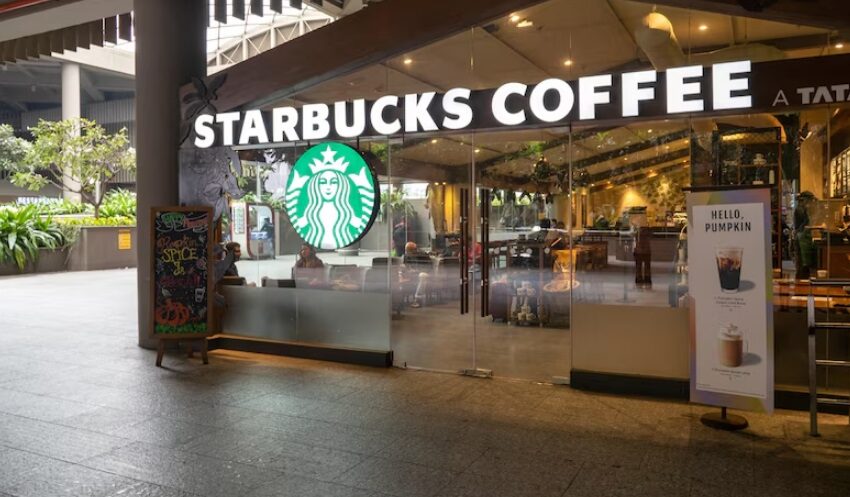
Starbucks in India: Tata Consumer Addresses Closure Speculations
Is Starbucks closing chop in India?
JV partner Tata Consumer Products says no. This comes after Reuters earlier reported that TCP is delaying some Starbucks store openings in India due to reduced customer footfall amid high inflation.
Is the American coffee giant Starbucks planning to shut shop in India? No, according to joint venture partner Tata Consumer Products (TCP).
Speaking to CNBC-TV18 on December 19, TCP addresses rumours that Starbucks may withdraw from the Indian market amid slow footfalls and inflation impact. “Reports of Starbucks looking to exit India (are) completely false and baseless. Tata’s relationship with Starbucks stands strong with shared values and commitment to India,” Tata Consumer told the channel.
Store Openings Pushed Back
Earlier on December 15, Reuters reported that TCP is likely to push back plans for some new Starbucks store openings until later in due to low footfalls.
Tata Consumer CEO Sunil D’Souza told Reuters, “We will calibrate for the short term — maybe instead of opening 100, we will open 80 now, and next year we will open 120 instead of 100. Tata Starbucks is still focused on reaching its 2028 goal to operate 1,000 stores by 2028.”
Tata Starbucks operates over 450 stores in India — this number is more than double compared to four years back, D’souza said. He, however, added that a lack of quality locations is a roadblock. “In India, good quality real estate with traffic… is a challenge,” he said.
Tata Starbucks has beefed up its dedicated team to plan for store openings, keeping an eye out for upcoming real estate development and shortlisting locations ahead of time, as per the report.
Sales & Revenue Amid Coffee Culture
In the last financial year, Starbucks’ sales in India rose 12 per cent to $143.6 million, and in H1FY24, revenue rose only marginally.
D’souza is optimistic, the report noted, adding that he expects the company’s bet on coffee to pay off in the longer run as India’s coffee culture grows. Cafe density in the country is still low compared with other Asian countries such as Indonesia, Vietnam and the Philippines, the report added.
Separately, D’Souza said Tata Consumer’s revenue would increase in the double-digit percentage range in the second half of the financial year, with profit coming under pressure due to higher prices of raw materials, including tea.

